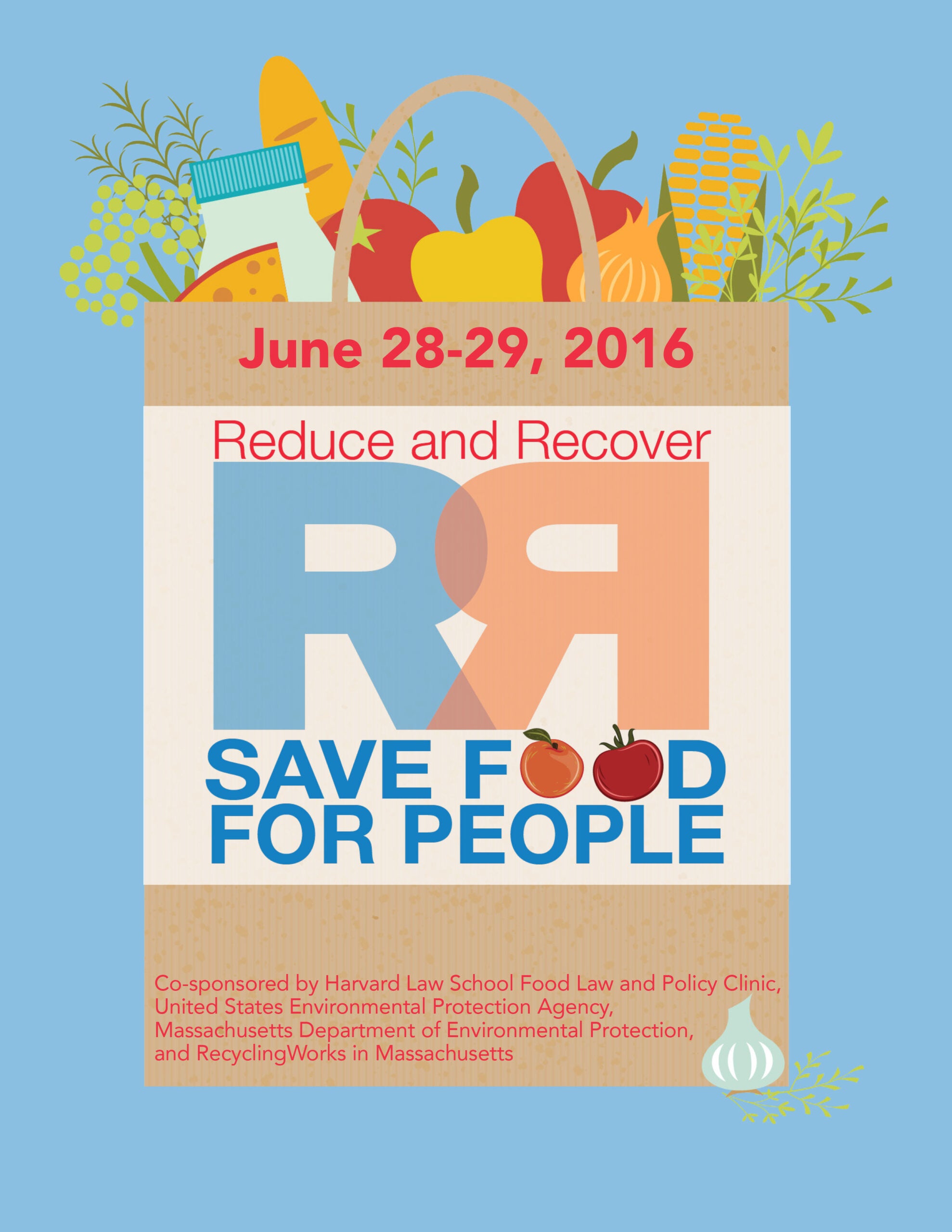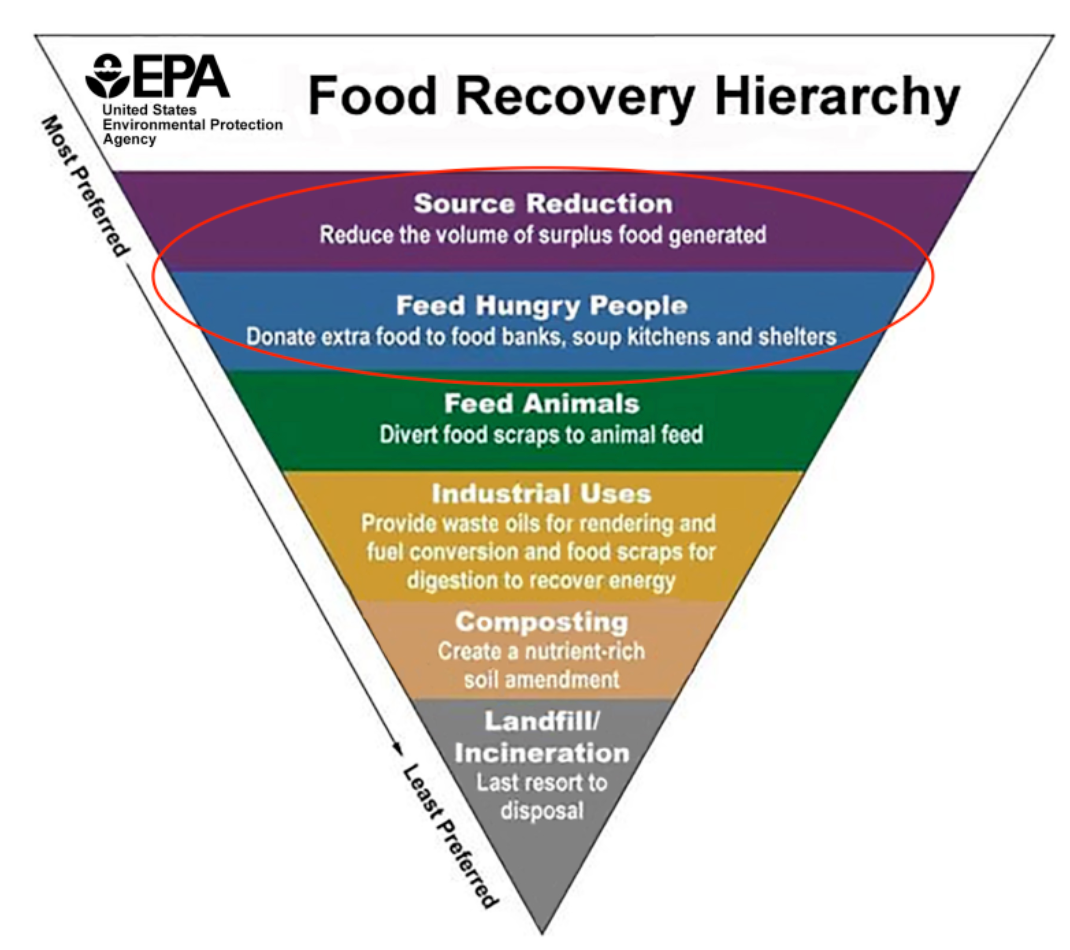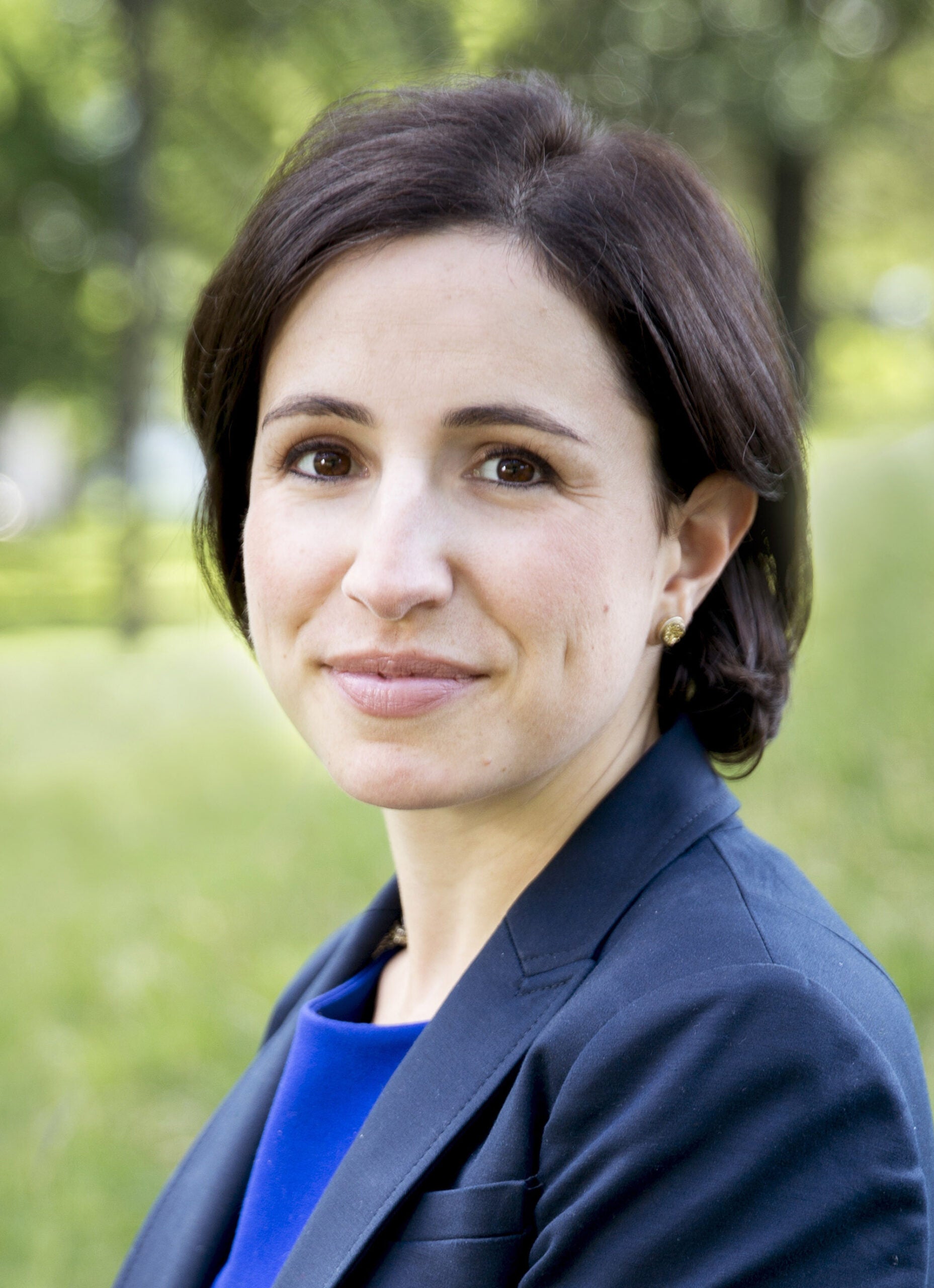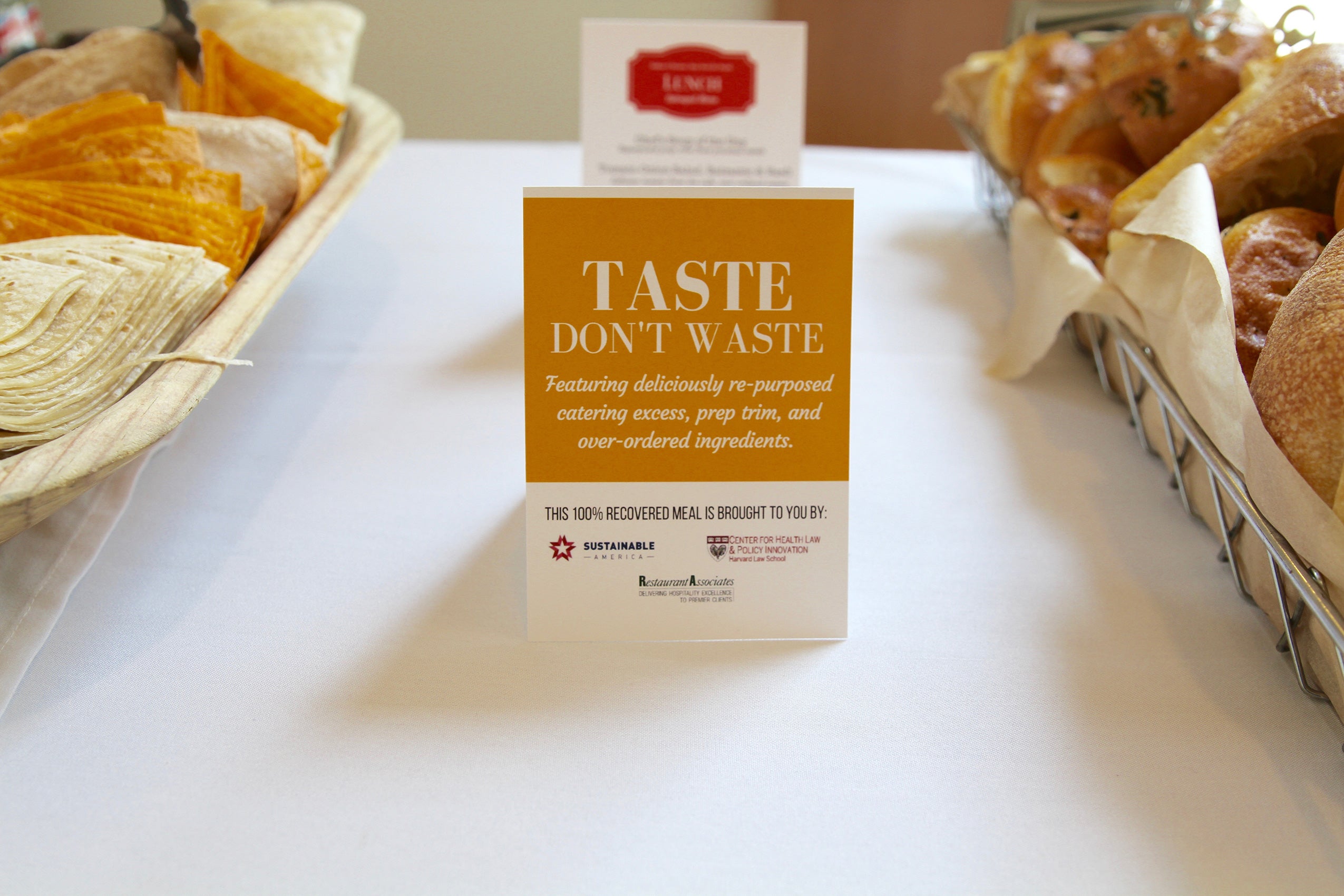
“$1.3 billion per year is spent on sending food to landfills.”
“Food waste makes up 21% of landfill waste in the United States”
“As much as 40 percent of food produced in America gets thrown out.”
“This month you’ll toss 24 pounds of food in the trash.”
Food recovery entrepreneurs, farmers, business persons, academics, government officials and many others converged at Harvard Law School for two days of learning, strategizing, and networking to address the growing issue of food waste.
The conference, “Reduce and Recover: Save Food for People,” held June 28 and 29, was sponsored by the Harvard Law School Food Law and Policy Clinic (FLPC), with support from the Environmental Protection Agency, the Massachusetts Department of Environmental Protection (MassDEP) and RecyclingWorks in Massachusetts.

In September 2015, the USDA and Environmental Protection Agency set the first-ever national food waste reduction goal, aiming to reduce food waste 50% by 2030. The Reduce and Recover conference focused on brainstorming innovative ways to reduce food waste in the U.S. and national awareness about the problem.
“Consumers play a huge role in this. Forty-five percent of all food waste happens in consumers’ homes,” said Assistant Clinical Professor Emily Broad Leib ’08, director of the Harvard Food Law and Policy Clinic.
Many consumers depend on expiration date and sell-by date labels when purchasing or disposing of food, but they often don’t realize that those labels aren’t based on any science or federal legislation.

During a session on food labels and expiration dates, attendees watched the documentary produced by the Harvard Food Law Policy Clinic on food labels. The documentary, “Expired: Food Waste in America,” focuses on a Montana law that prevents selling or donating milk 12 days past pasteurization.

Emily Broad Leib is director of the Harvard Food Law and Policy Clinic.
In her welcome to participants to the conference, Martha Minow, Morgan and Helen Chu Dean and Professor of Law at Harvard Law School, said: “Preventing the waste of food and promoting access to food: what could be more fundamental? That is why Harvard created the first food law and policy clinic in the nation and works every day to expand and deepen public dialogue on a real reduction of food waste.”
As part of the two-day event, more than 350 leaders in food waste and food recovery participated in breakout sessions and working groups to identify key steps in terms of policy, innovation, and measurable actions to reduce waste.
Broad Leib moderated the plenary panel, “Operating at the Intersection of Hunger Relief and Environmental Protection,” which featured Karen Hanner, managing director, manufacturing product sourcing, Feeding America; Mathy Stanislaus, assistant administrator for the EPA’s Office of Land and Emergency Management; and Doug Rauch, former president of Trader Joe’s and founder of the Daily Table.
“Wasted food is a failure of the system. It’s a societal breakdown of valuable product being thrown away,” said Stanislaus. “How do we really make this resonate? How do we really tip this in society?”
Janet Bowen, a representative from the EPA, discussed an EPA program called “Food: Too Good to Waste,” a toolkit that provides strategies for consumers to prevent food waste at home, which ultimately reduces costs for families. She said a pilot program in Rhode Island was successful in lessening food waste. Compared to baseline food waste in households, there were significant reductions in weight and volume of food wasted in the test households.
“We need to provide more awareness that there’s something [consumers] can do for this issue,” she said.
After the morning sessions, attendees lined a buffet featuring chicken, rolls, broccoli salad, and cookies. Colorful signs were scattered on the table, noting that all of the food provided at the conference was re-purposed catering excess, prep trim, and over-ordered ingredients — practicing the priority of eliminating food waste from the source.
The Harvard Law School Food Law and Policy Clinic, established in 2010, provides legal advice to nonprofits and government agencies seeking to increase access to healthy foods, support small-scale and sustainable farmers, and reduce waste of healthy, wholesome food, while educating law students about ways to use law and policy to impact the food system.
Read more about the conference:
‘Save Food for People’: Hundreds gather at Harvard to discuss urgent need for food waste reduction; Waste Dive, June 30, 2016
How to Feed 350 Food Waste Experts; Sustainable America, July 18, 2016
Conference discusses food waste, consumer education, Harvard University Sustainability, July 22, 2016
Watch all conference sessions on the Harvard Law School YouTube channel.
